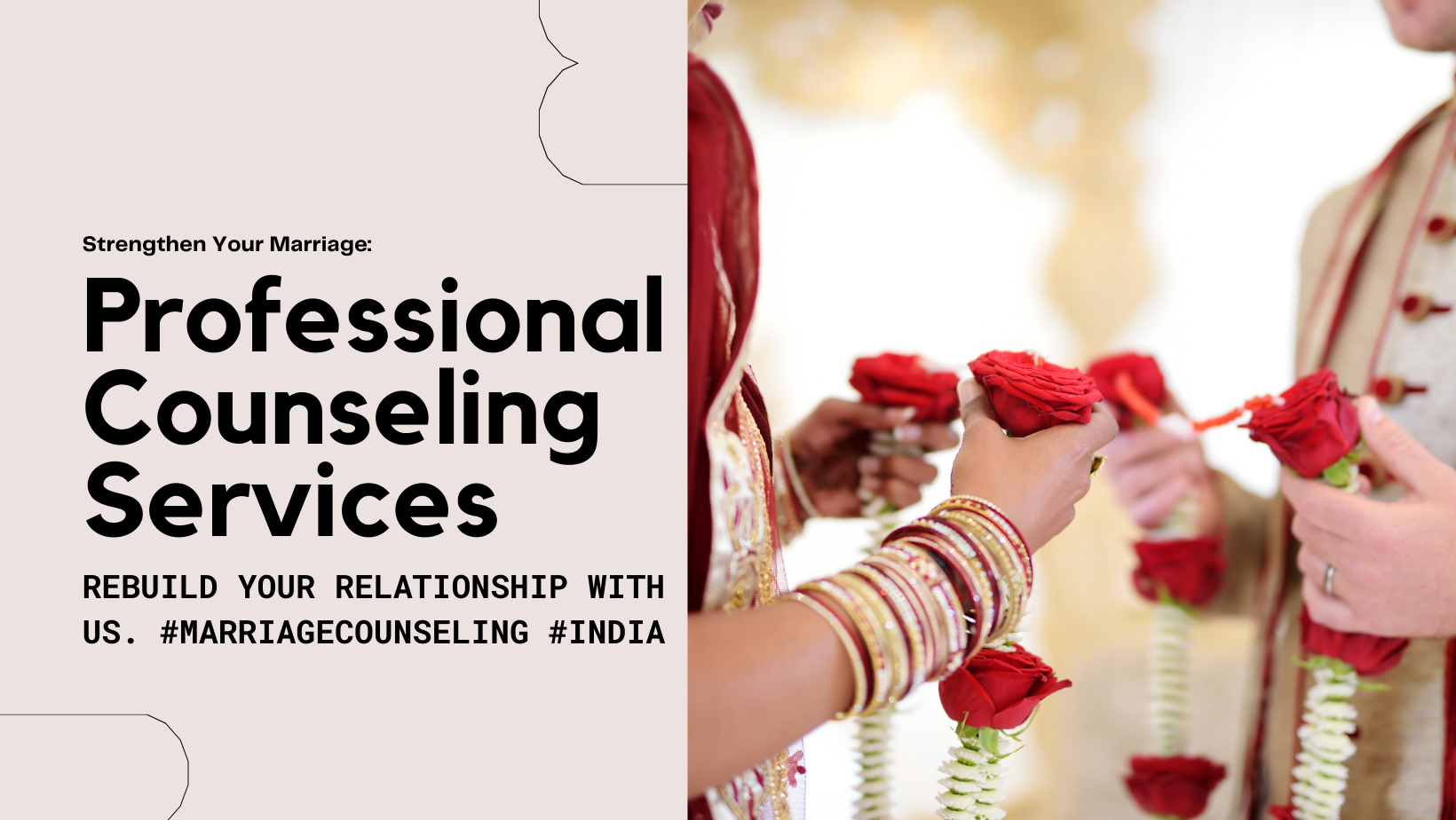Marriage Counselling in India: Strengthening Bonds in a Changing Landscape

Introduction
In the rich tapestry of Indian culture, marriage is revered not just as a union of two individuals but as a sacred bond that weaves together families and communities. It is celebrated with grandeur, symbolizing not only a personal commitment but also a societal covenant. Yet, in the evolving landscape of modern India, where traditional values intersect with contemporary aspirations, the sanctity of marriage is often tested. Amidst these challenges, the concept of marriage counseling emerges as a beacon of hope, offering pathways to understanding, healing, and strengthening relationships.
Historically, the idea of seeking help from outside the familial circle for marital issues has been met with skepticism and stigma. However, as societal norms evolve, there's a growing recognition of the importance of professional support in navigating marital complexities. Careme Health stands at the forefront of this transformative movement, offering accessible, empathetic, and culturally sensitive marriage counseling services designed for the Indian context. By bridging the gap between tradition and modernity, Careme Health aims to support couples in fostering enduring bonds and navigating the journey of marriage with resilience and mutual respect.
Understanding Marriage Counseling
What is Marriage Counseling?
Marriage counseling, also known as couples therapy, is a type of psychotherapy that focuses on helping couples recognize and resolve conflicts, improve their relationship, and make thoughtful decisions about their future together. It is guided by licensed therapists known as marriage and family therapists (MFTs), who provide a safe and confidential space for couples to explore their feelings, behaviors, and thoughts. The ultimate goal is to enhance marital satisfaction, foster communication, and rebuild a foundation of trust and mutual understanding.
The Purpose and Benefits of Marriage Counseling
The purposes of marriage counseling extend beyond conflict resolution; it is also about deepening connections, enhancing empathy, and fostering a healthier, more joyful partnership. Benefits include improved communication skills, increased emotional intimacy, better understanding of each other's needs and desires, and effective conflict-resolution strategies. For many couples, marriage counseling is a pivotal step towards rekindling love and ensuring the longevity of their union.
Changing Attitudes and the Stigma of Therapy in India
In India, the journey towards accepting therapy, particularly for marital issues, has been gradual. Cultural norms that prize privacy and internal family resolution of problems have historically discouraged couples from seeking external support. However, a significant shift is underway, driven by increased awareness, education, and the influence of media portraying the benefits of therapy. Younger generations are leading the charge, challenging taboos and embracing mental health care as a vital component of overall well-being.
Evidence of Success: The Impact of Marriage Counseling
Studies and statistics underscore the efficacy of marriage counseling in fostering happier and more sustainable relationships. Research indicates that a substantial majority of couples who undergo counseling report improvements in their relational satisfaction and communication skills. In India, where marriage counseling is gaining ground, anecdotal evidence and emerging studies suggest a similar trend of positive outcomes. Careme Health, leveraging evidence-based practices, plays a crucial role in this paradigm shift, providing tailored counseling services that respect cultural nuances while promoting the universal values of love, respect, and mutual growth.
Related Articles

Letting Go With Grace: Emotional Tools for Closure
Letting go is never easy. Whether we are parting ways with a loved one, ending a relationship, leaving a job, or saying goodbye to a cherished chapter of life, the emotional weight can feel overwhelming. Yet, closure is essential for our emotional well-being. Without it, we carry unresolved grief, anger, regret, or longing that can seep into new relationships and experiences, holding us back from healing and growth.

Breakup Blues: How to Cope and Rebuild Your Self-Worth
A breakup often feels like a silent earthquake—unseen by others but devastating within. The pain doesn’t just come from the loss of a relationship, but from the crumbling of the life, identity, and future you built with another person. You may find yourself questioning your worth, doubting your value, and feeling isolated even when surrounded by people. In Indian society, where emotional expression is often discouraged and breakups can be stigmatized, this pain may feel even more overwhelming. But the truth is—while breakups may shake you, they do not define you. You are not broken; you are in a process of emotional reformation. And with the right tools, guidance, and support system, you can rebuild not just your self-worth but also your entire life narrative.

Healing After Heartbreak: A Mental Health Perspective
Heartbreak doesn't just break your heart—it can shatter your sense of identity, peace, and purpose. Whether the end was expected or abrupt, mutual or one-sided, short-lived or long-term, the aftermath often leaves people emotionally disoriented. In Indian culture, where societal expectations and family involvement in romantic relationships are prevalent, the pain is not just personal—it is public. Yet, very few are taught how to heal from emotional loss in a healthy, sustainable way.

Boundaries in Love: Saying ‘No’ Without Guilt
Love, in its truest form, should be a safe space—a space where individuality is not only respected but celebrated. Yet, in many relationships, especially in the Indian cultural context, love is often misunderstood as constant availability, complete sacrifice, and putting the other person first, always. As noble as this may sound, this version of love often leads to emotional exhaustion, suppressed resentment, and the erosion of one’s identity.

Gaslighting in Relationships: What It Is and How to Heal
Gaslighting is a form of emotional abuse that erodes your ability to trust your own perception. It’s a slow, insidious process that often begins with subtle doubts and ends with complete self-questioning. In romantic relationships—especially in the Indian context where silence, compromise, and duty are often mistaken for love—gaslighting can be even harder to recognize.

How Depression Can Affect Your Relationship—And What You Can Do
Depression is not just an internal struggle—it ripples outward, affecting relationships, routines, and the emotional fabric that holds people together. When someone is dealing with depression, it's not only their world that becomes dim—it can cast a shadow over their most intimate connections too. In a country like India, where open conversations about mental health are still rare and love is often equated with endurance, depression within a relationship can become invisible, misunderstood, or misjudged.
